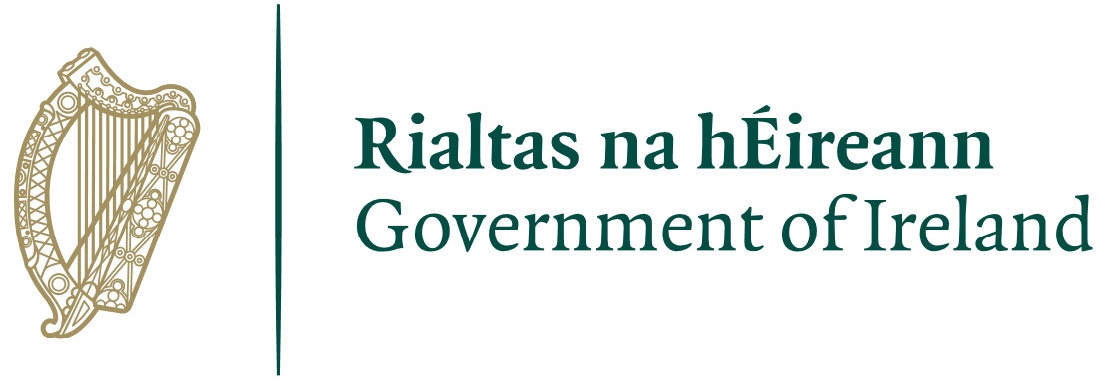This is Serious
The posts on this blog may sometimes seem discursive- whimsical even. But this one focuses on a matter of extreme urgency for L£ADER companies such as Kilkenny LEADER Partnership (KLP). The shocking discovery (there’s no better phrase) that we were not supposed to be funding food projects became news in January this year. Initially, it seemed that this new-found bar was only on ‘on-farm food’ projects, which would be extremely serious but at least confinable. But the truth came “dropping slow” in the last couple of weeks, that it was all food projects. Now that’s not a serious issue; it’s a disastrous one!
Food – A Main Driver of Rural Enterprise
Disastrous- not just for LEADER companies, or the LEADER programme, or the existing and potential food enterprises of Ireland- but especially for the overall Rural Development Programme (RDP). The crux of the matter is that due to a misunderstanding at state level on which of the three main funding ‘axes’ of the RDP should be supporting small food businesses and the lack of flexibility in the budgets to remedy the error. We should make clear at this stage what is at stake here. Small food businesses employing under 10 people and with turnover of less than €2 million, offer the most obvious source of opportunity to employment and economic sustainability to rural communities. That’s across all the EU, but Ireland is particularly well positioned here. The set up costs of a food business are significant and LEADER’s grant aid profile and range of supports has been a lifeline at a time when other pools of support had become scarcer. The Department of Agriculture, Fisheries & Food recently launched ‘Food Harvest 2020’ highlights the huge potential of the sector in addressing the country’s employment and enterprise needs.
An Appalling Vista
LEADER companies have a long standing and proud record of supporting these businesses. KLP has prioritised the development of the food sector in its plan until 2013. Having just brokered and published an integrated Food Strategy last year, we are in the process of appointing an Implementation Team to drive it when the boom came down. Like most other LEADER companies in Ireland we have made food a priority for this programme. Ironically, the very fact that the situation is so serious for the state has led to swift efforts to remedy the problem. The the soon-to-be- dissolved Department of Community, Equality & Gaeltacht Affairs (CEGA) has moved quickly to first clarify the issues and then to address them. No more than the LEADER companies, CEGA’s current officials were shocked by the appalling vista that faced all in involved in the RDP. CEGA’s preliminary estimates reckon that approximately 40% of the enterprise projects approved under the programme are food related. LEADER companies such as KLP would reinforce that- and add that the downstream employment potential from food projects is exponential in scale. Food enterprises such as Goatsbridge Trout Farm and Oldtown Bakery have not only realised their job targets- but by-passed them. No other rural enterprise sector offers the same opportunities for employment.
How Could this Happen?
So how did the RDP get itself into this situation? Well it comes down to the allocation of remits to the funding axes and the levels of funding in them. The RDP in Ireland has a total budget of €5,778 million. This money is divided into separate pots (or axes) of funding, focused on particular parts of the programme’s mission. Because of the way this particular programme’s rules were drafted, food projects can only be funded through axis 1. This is a surprise to most people involved in the sector and only became apparent on foot of a query from an unknown party to the EU some months back. But axis 1 has money only for training supports, installation funds for young farmers and early retirement programmes. It has no spare funding. On the other hand, axis 3 (LEADER project funds), has plenty of funding which now cannot be used for food projects. Axis 4 is the much smaller administration and animation fund that runs LEADER. The obvious solution might seem to be to take money from axis 3 and reallocate it to axis 1. But this cannot be done, because axis 3 has been set at the minimum 10% level for any of the 3 axes in the programme!
An Irish Solution to an Irish Problem?
This may not just be an Irish problem and in truth several other EU states have been happily and unwittingly breaking the RDP rules by funding food projects from axis 3. It has been going on since the current programme began in 2007. The difference is that other countries may have some flexibility in their overall RDP budgets that will allow them to absorb and reallocate funding without a rewriting of the programme. In Ireland we do not have any such flexibility. So if we want to fund food projects in Ireland either money is found within axis 1’s existing budget, apparently not possible – or funding moved to axis 1 from another axis- or from another part of the overall Common Agricultural Policy (CAP) of which the RDP is but the “second pillar”. Axis 2 is by far the largest one with 80% of the funding available. Its funding is focused on environment, biodiversity, REPs, NATURA 2000 and some related programmes. The Department of CEGA is now in discussions with its sister Department of DAFF to get a solution. It is accepted that this will require an amendment to the programme and its axes allocations. We commend the current officials in the Rural Development Division of CEGA for recognising the critical need to act on this issue swiftly.
Taking money from any RDP axis is replete with financial, political and logistical implications. Changes won’t be easily agreed. But the ball is in the court of Irish politicians and the senior civil service to settle those arguments and then make the case to the EU Commission. It should also be stated that through the EU’s controversial ‘modulation’ mechanism, that claws-back funding from farmer’s single farm payment’s, subsidies, etc. in pillar 1 of the CAP- that €13 million has been allocated for the National Broadband Scheme. Now modulation is a very controversial and much resented policy among farmers. But if it is to exist; and if it can be used to support such valuable but non-obvious elements as IT infrastructure, surely micro-enterprise food projects should also be considered as deserving. Small food enterprises are as as vital to the farming and rural community’s future as improved broadband and should be considered as a suitable case for support. However, there may be other or better ways to address the deficit of funding. But addressed it must be!
KLP waits with intense interest what transpires. The frustration involved is compounded by the awareness that we have no back door here. We’ve attached so much credibility on supporting food that if we can’t deliver on our promises, well…….? But the issue is much bigger than KLP’s credibility. If the Irish state wants to use the food sector as a springboard to sustainable economic growth, it must not only amend this obvious and recognised error but make any amendments in its power to ensure that the programme can function effectively in the food sector. It’s not like rural Ireland has many alternatives.
Declan Rice, CEO



![23-27 LEADER Programme Logos-2040 logo Text PNG[29] 23-27 LEADER Programme](http://cklp.ie/wp-content/uploads/23-27-LEADER-Programme-Logos-2040-logo-Text-PNG29.png)




